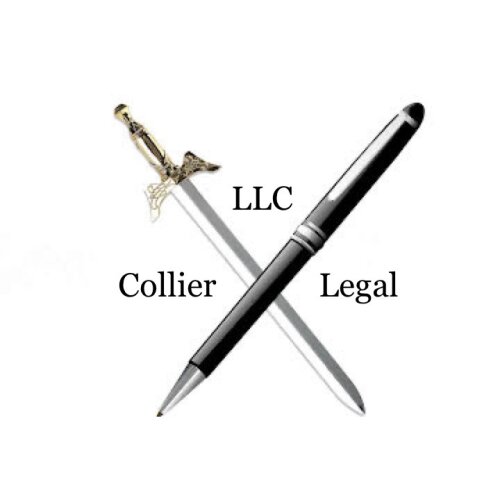Best Merger & Acquisition Lawyers in Ohio
Share your needs with us, get contacted by law firms.
Free. Takes 2 min.
Or refine your search by selecting a city:
List of the best lawyers in Ohio, United States
About Merger & Acquisition Law in Ohio, United States
Merger and Acquisition (M&A) law governs the process by which companies combine, acquire, or transfer business assets. In Ohio, M&A law encompasses a range of legal and financial considerations, including due diligence, regulatory compliance, contract negotiation, employment issues, and antitrust concerns. Both public and private companies in Ohio engage in M&A transactions to achieve business growth, enter new markets, or realize strategic objectives. M&A activities in the state are impacted by both federal regulations and specific Ohio statutes, making local legal expertise particularly valuable.
Why You May Need a Lawyer
M&A transactions are complex undertakings. Legal representation is highly recommended for all parties involved to protect interests, ensure compliance, and facilitate tasks such as:
- Drafting and negotiating definitive agreements
- Conducting due diligence investigations
- Ensuring compliance with state and federal securities laws
- Addressing antitrust and competition issues
- Navigating employee and labor law matters
- Advising on tax implications and structuring
- Resolving any disputes that arise during or after the transaction
- Handling regulatory filings and approvals
A lawyer ensures that all documents are correctly prepared, deadlines are met, and liabilities are identified and managed appropriately.
Local Laws Overview
M&A transactions in Ohio are governed by a combination of federal law, such as the Securities Exchange Act and the Hart-Scott-Rodino Antitrust Improvements Act, and state laws, particularly the Ohio Revised Code. The Ohio General Corporation Law is a key statute outlining corporate formalities for mergers and acquisitions involving Ohio-incorporated entities. Ohio also imposes its own business combination and fair price statutes designed to protect shareholders of public companies from unfair practices.
Ohio law requires compliance with state regulations regarding business entity filings, transfer of licenses and permits, and notification requirements for certain stakeholders. Transactions involving highly regulated industries, such as banking or healthcare, may trigger additional state-level review or approvals. Additionally, Ohio courts may become involved in the event of disputes, especially concerning fiduciary duties or contract enforcement.
Frequently Asked Questions
What is considered a merger or acquisition in Ohio?
A merger involves combining two or more companies into a single entity, while an acquisition refers to one company purchasing another company’s stock or assets. Both can have significant legal and financial implications and are regulated under Ohio and federal law.
What are the key steps in an Ohio M&A transaction?
The process typically involves confidentiality agreements, due diligence, negotiation of letters of intent, definitive agreements, regulatory filings, approvals from boards and shareholders, and closing the transaction.
Are there any specific Ohio laws that affect company mergers?
Yes, the Ohio Revised Code contains provisions specifically related to mergers, including requirements for board and shareholder approvals, as well as regulations to protect minority shareholders.
Do I need to notify regulatory authorities for a merger in Ohio?
Certain M&A transactions, especially those above specific dollar thresholds or involving regulated industries, may require notification or approval from state or federal regulators, such as the Federal Trade Commission, Department of Justice, or Ohio Division of Securities.
How does due diligence work in Ohio M&A deals?
Due diligence involves the thorough investigation of a target company’s financial, legal, and operational status. In Ohio, this process includes reviewing contracts, records, intellectual property, employment matters, litigation, and regulatory compliance.
What are potential legal risks in an M&A transaction?
Risks can include undisclosed liabilities, breach of contract, antitrust violations, tax consequences, employee claims, and challenges in transferring permits or licenses.
How is the purchase price for an acquisition determined?
The purchase price is typically established through negotiations, often based on multiples of earnings, asset values, or other financial metrics, and may be influenced by due diligence findings.
Is shareholder approval required for mergers in Ohio?
Shareholder approval is generally required for mergers involving Ohio corporations, as set forth in the Ohio Revised Code. The level of approval needed can depend on the company’s governing documents and the transaction’s structure.
What is the role of a letter of intent in Ohio M&A deals?
A letter of intent outlines the preliminary terms and conditions of a proposed transaction. While typically non-binding, it sets the groundwork for more detailed negotiations and due diligence.
Can M&A transactions affect employees in Ohio?
Yes, mergers or acquisitions can impact employee status, benefits, contracts, and union agreements, depending on how the transaction is structured and negotiated.
Additional Resources
For individuals seeking further assistance regarding M&A law in Ohio, the following resources may be helpful:
- Ohio Secretary of State - Business Services Division: Information on business filings and entity records
- Ohio Division of Securities: Guidance on compliance with state securities laws in M&A activity
- Ohio State Bar Association: Directory of qualified mergers and acquisitions attorneys and resources
- U.S. Securities and Exchange Commission (SEC): Federal regulations governing securities and public company transactions
- Federal Trade Commission (FTC): Guidance on antitrust and competition issues in M&A
- Local law libraries and business development centers for consumer guides and references
Next Steps
If you are considering a merger or acquisition in Ohio, it is important to take timely and informed action:
- Consult with a qualified Ohio M&A attorney as early as possible to assess your goals, risks, and legal requirements
- Gather all relevant documents and financial information about your business or the target company
- Discuss potential deal structures and tax implications with your legal and financial advisors
- Begin conducting due diligence to identify and address potential issues proactively
- Ensure compliance with all Ohio and federal regulatory requirements before, during, and after the transaction
- Engage in transparent communication with stakeholders, including employees, shareholders, and business partners
Acting with the guidance of experienced legal counsel can help ensure that your M&A transaction in Ohio proceeds smoothly, protects your interests, and achieves your intended objectives.
Lawzana helps you find the best lawyers and law firms in Ohio through a curated and pre-screened list of qualified legal professionals. Our platform offers rankings and detailed profiles of attorneys and law firms, allowing you to compare based on practice areas, including Merger & Acquisition, experience, and client feedback.
Each profile includes a description of the firm's areas of practice, client reviews, team members and partners, year of establishment, spoken languages, office locations, contact information, social media presence, and any published articles or resources. Most firms on our platform speak English and are experienced in both local and international legal matters.
Get a quote from top-rated law firms in Ohio, United States — quickly, securely, and without unnecessary hassle.
Disclaimer:
The information provided on this page is for general informational purposes only and does not constitute legal advice. While we strive to ensure the accuracy and relevance of the content, legal information may change over time, and interpretations of the law can vary. You should always consult with a qualified legal professional for advice specific to your situation.
We disclaim all liability for actions taken or not taken based on the content of this page. If you believe any information is incorrect or outdated, please contact us, and we will review and update it where appropriate.
Browse merger & acquisition law firms by city in Ohio
Refine your search by selecting a city.











